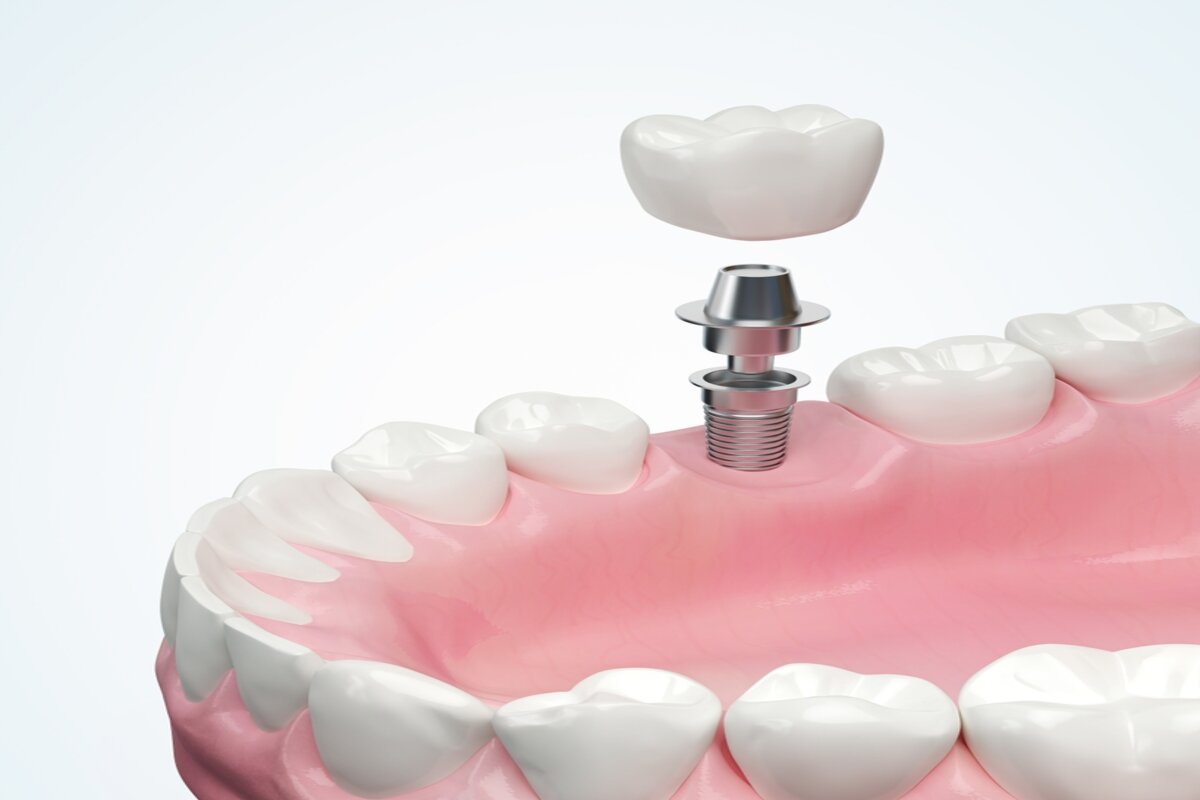Dental implants are considered one of the best options for replacing missing teeth, offering durability, a natural appearance, and improved functionality. For many people, they provide not only an aesthetic improvement but also a significant boost in confidence and quality of life. However, a common question arises when considering this dental procedure: How long do teeth implants last? Understanding the factors that impact the lifespan of dental implants is essential for anyone considering them as a solution to missing teeth.
What Are Teeth Implants?
Teeth implants are artificial tooth roots made from biocompatible materials like titanium, which are surgically placed into the jawbone. These implants serve as a sturdy foundation for fixed or removable replacement teeth that are designed to look and function like natural teeth. Dental implants have gained popularity over the years due to their high success rates and the comfort and stability they offer compared to traditional dentures or bridges.
The Lifespan of Teeth Implants: What Can You Expect?
How Long Do Teeth Implants Last on Average?
On average, dental implants can last for many years and even a lifetime when properly maintained. The implant post, which integrates with the jawbone, is particularly durable, and with proper care, it often doesn’t require replacement. Most dental implants have a success rate of up to 98%, and many patients find that their implants remain in excellent condition for 20 years or more. However, the crown or prosthetic tooth placed on top of the implant might need replacement every 10-15 years due to wear and tear.
The Difference Between the Implant and the Crown
It’s important to note the distinction between the implant post and the dental crown. While the implant post is designed to last a lifetime, the crown, which is exposed to the daily rigors of chewing, may need to be replaced periodically. Modern dental crowns are made from durable materials that can withstand significant pressure, but they are still subject to the normal wear that affects all teeth.
Factors That Influence the Longevity of Teeth Implants
Several factors can determine how long teeth implants last, and understanding these can help in maximizing their lifespan.
Oral Hygiene
Good oral hygiene is crucial for the longevity of dental implants. Regular brushing and flossing help to keep the area around the implant clean and free from plaque and bacteria, which can lead to gum disease and implant failure. Patients should treat their dental implants as they would their natural teeth, ensuring consistent oral care routines.
Health and Lifestyle Choices
A patient’s overall health and lifestyle choices significantly impact the success and longevity of teeth implants. Conditions like uncontrolled diabetes and habits such as smoking can negatively affect the healing process and the long-term health of implants. Smoking, in particular, restricts blood flow to the gums, making it harder for implants to integrate with the jawbone and increasing the risk of implant failure.
Bone Health
The health of the jawbone is a critical factor in the success of dental implants. Sufficient bone density is needed to anchor the implant securely. If the bone is too thin or has deteriorated due to periodontal disease or tooth loss, bone grafting procedures may be necessary before implant placement. Maintaining good bone health through a balanced diet rich in calcium and regular dental check-ups is essential.
Regular Dental Visits
Regular visits to the dentist play a key role in the maintenance and longevity of dental implants. During these visits, the dentist will monitor the implant, the crown, and the surrounding gums for any signs of problems. Early detection and treatment of issues such as gum disease can prevent more serious complications, ensuring that your implants remain in good condition.
Extending the Life of Your Teeth Implants
Follow Post-Surgery Instructions
Adhering to your dentist’s post-operative care instructions is crucial for the success of your dental implants. This might include avoiding certain foods, using specific mouth rinses, and taking any prescribed medications. Following these guidelines helps ensure proper healing and reduces the risk of complications.
Avoid Chewing Hard Objects
Although teeth implants are strong, they are not immune to damage. Chewing on hard objects such as ice, hard candies, or using your teeth as tools can damage the crown or the implant itself. Being mindful of what you put in your mouth can help maintain the integrity of your dental implants.
Healthy Lifestyle Habits
Maintaining a healthy lifestyle benefits not only your overall well-being but also the longevity of your teeth implants. Eating a diet rich in essential nutrients, managing chronic conditions, and avoiding tobacco products can all contribute to the long-term success of your dental implants.
Conclusion

So, how long do teeth implants last? With proper care and attention, they can last a lifetime, providing a durable and aesthetically pleasing solution for missing teeth. By maintaining excellent oral hygiene, adopting a healthy lifestyle, and attending regular dental check-ups, you can maximize the lifespan of your dental implants. If you’re considering dental implants and want to ensure you get the best care, contact Indian Trail Dental Studio today to learn more about your options and start your journey towards a lasting smile.


